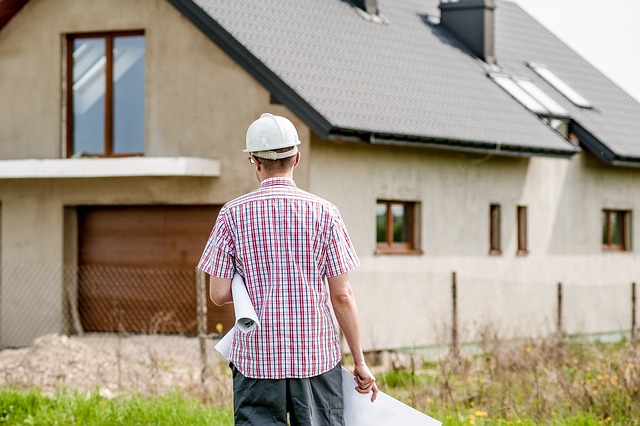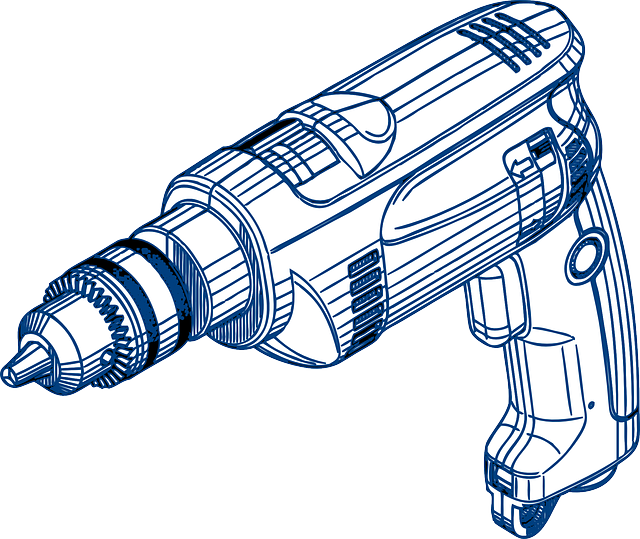Regular home inspections are key for maintaining a safe, efficient, and long-lasting living space. These inspections, conducted by certified professionals, offer a detailed assessment of the property's structure, systems, and components, ensuring homeowners and potential buyers have complete information for making informed decisions. A thorough inspection identifies immediate and long-term maintenance needs, focusing on structural integrity, roof condition, HVAC efficiency, plumbing functionality, and electrical safety. Addressing issues like foundation cracks or outdated wiring promptly can prevent future expenses and promote an energy-efficient home environment. Engaging with professional inspectors provides insights into the property's repair demands, allowing for effective planning and management of maintenance tasks to uphold Home Repair and Maintenance standards, thereby safeguarding both the home's integrity and the family's well-being over time.
When considering the purchase of a new home or ensuring the longevity of your current abode, understanding home repair and maintenance is pivotal. This article delves into the critical role of professional home inspection and consulting, shedding light on how these services safeguard your investment and promote optimal home function. We will explore key aspects to consider during a thorough home inspection, highlight the expertise of seasoned home inspectors in pinpointing latent issues, and provide actionable strategies for repair and maintenance post-inspection. Homeowners will gain valuable insights into preserving their homes’ integrity and functionality, ensuring safety and comfort for years to come.
- Understanding the Role of Home Inspection in Home Repair and Maintenance
- Key Elements to Look for During a Comprehensive Home Inspection
- The Expertise of Professional Home Inspectors in Identifying Potential Issues
- Strategies for Effective Home Repair and Maintenance Post-Inspection
Understanding the Role of Home Inspection in Home Repair and Maintenance

Regular home inspection plays a pivotal role in identifying issues before they escalate into costly repairs, thereby facilitating informed decision-making for homeowners and prospective buyers alike. A comprehensive home inspection, conducted by certified professionals, offers an in-depth look at the condition of a residence, including its structure, mechanical systems, and components. This process is not just about detecting problems; it’s also about assessing the overall safety and efficiency of the home. By pinpointing areas in need of repair or maintenance, homeowners can prioritize issues based on urgency and potential impact on their living environment. This proactive approach to home upkeep not only extends the lifespan of the property but also ensures that any necessary repairs are carried out by qualified professionals, adhering to industry standards and best practices for home repair and maintenance. Understanding the findings from a professional inspection empowers homeowners with the knowledge to make wise investments in their homes, fostering both safety and comfort for years to come.
Key Elements to Look for During a Comprehensive Home Inspection

When undergoing a comprehensive home inspection, it’s imperative to focus on elements that encompass both immediate and long-term home repair and maintenance needs. The structural integrity of the property should be a top priority, involving a careful examination of the foundation, walls, roof, and all supporting elements. Ensure that the foundation is solid and free from cracks or signs of moisture intrusion, as these can lead to costly repairs down the line. The roof must be inspected for leaks, proper drainage, and adequate ventilation, as these factors significantly impact the home’s overall health and longevity. Additionally, the inspection should include a thorough check of the home’s systems, including heating, ventilation, air conditioning (HVAC), plumbing, and electrical wiring. These systems are central to the comfort and safety of the home and require regular maintenance to function efficiently. Identifying issues like insulation deficiencies, outdated wiring, or potential water infiltration can guide necessary repairs to maintain a safe and energy-efficient living environment.
Beyond the visible structure, a comprehensive inspection also involves assessing the condition of the home’s mechanical systems. This includes evaluating the age, maintenance history, and operational efficiency of the furnace, air conditioner, water heater, and other critical components. It’s equally important to inspect all accessible plumbing for leaks or signs of wear, as well as to verify that drains and vents are properly installed and functional. For homeowners looking to maintain their homes in top condition, understanding the status of these elements is crucial for planning proactive maintenance schedules. This foresight not only ensures the home remains in good repair but also helps to avoid unexpected and costly repairs in the future.
The Expertise of Professional Home Inspectors in Identifying Potential Issues

When purchasing a home, understanding the condition of its structure and systems is paramount. Professional home inspectors bring a wealth of knowledge and experience to this process, meticulously examining every facet of the property. Their expertise lies in identifying potential issues that may arise from wear and tear or underlying construction defects. These experts conduct comprehensive inspections, scrutinizing everything from the roof’s integrity to the foundation’s stability, ensuring no stone is left unturned. Their keen eye for detail is crucial in detecting minor anomalies that could escalate into costly repairs if left unattended. Homeowners and potential buyers benefit greatly from their insights, as they provide a clear overview of the home repair and maintenance requirements necessary to maintain its longevity and safety. By pinpointing areas of concern, these professionals enable informed decision-making, ensuring that clients are fully aware of what it takes to keep their new home in prime condition. Their guidance is instrumental in preventing unexpected expenses related to home repairs by addressing issues before they become major problems. This proactive approach not only ensures the structural integrity and functionality of the home but also fosters a long-term relationship between the homeowner and the property, with ongoing maintenance and repair needs being managed effectively.
Strategies for Effective Home Repair and Maintenance Post-Inspection

Following a thorough home inspection, it’s imperative to devise a strategic approach to repair and maintenance to ensure the longevity and safety of your residence. A critical step post-inspection is prioritizing repairs based on urgency and potential impact on the home’s structure and functionality. Focus on addressing any issues that could compromise the integrity of the building, such as structural weaknesses or electrical hazards. For instance, leaky roofs should be patched to prevent water damage, and faulty wiring must be corrected to avert fire risks.
In addition to immediate repairs, implementing a regular maintenance schedule is key to preventing minor issues from escalating into costly problems. This involves seasonal checks of the HVAC system, ensuring gutters are clear of debris to prevent water intrusion, and regularly testing smoke detectors and other safety systems. Proactive maintenance also includes sealing windows and doors to maintain energy efficiency and inspecting insulation levels to ensure adequate thermal performance. By combining immediate corrective actions with ongoing care, homeowners can maintain a safe and comfortable living environment while preserving their property’s value over time.
Home inspection is a critical component in maintaining a safe and efficient living environment. A thorough home inspection by seasoned professionals can uncover issues that may otherwise go unnoticed, facilitating informed decision-making for home repair and maintenance. By understanding the key elements to look for during an inspection and leveraging the expertise of professional home inspectors, homeowners can address potential problems proactively. Post-inspection, implementing effective strategies for home repair and maintenance ensures long-term durability and comfort within the household. Engaging in regular inspections is a sound investment in the longevity and value of one’s property. Home repair and maintenance are not just about fixing what’s broken; they’re about preserving the integrity of your home and enhancing your quality of life.
